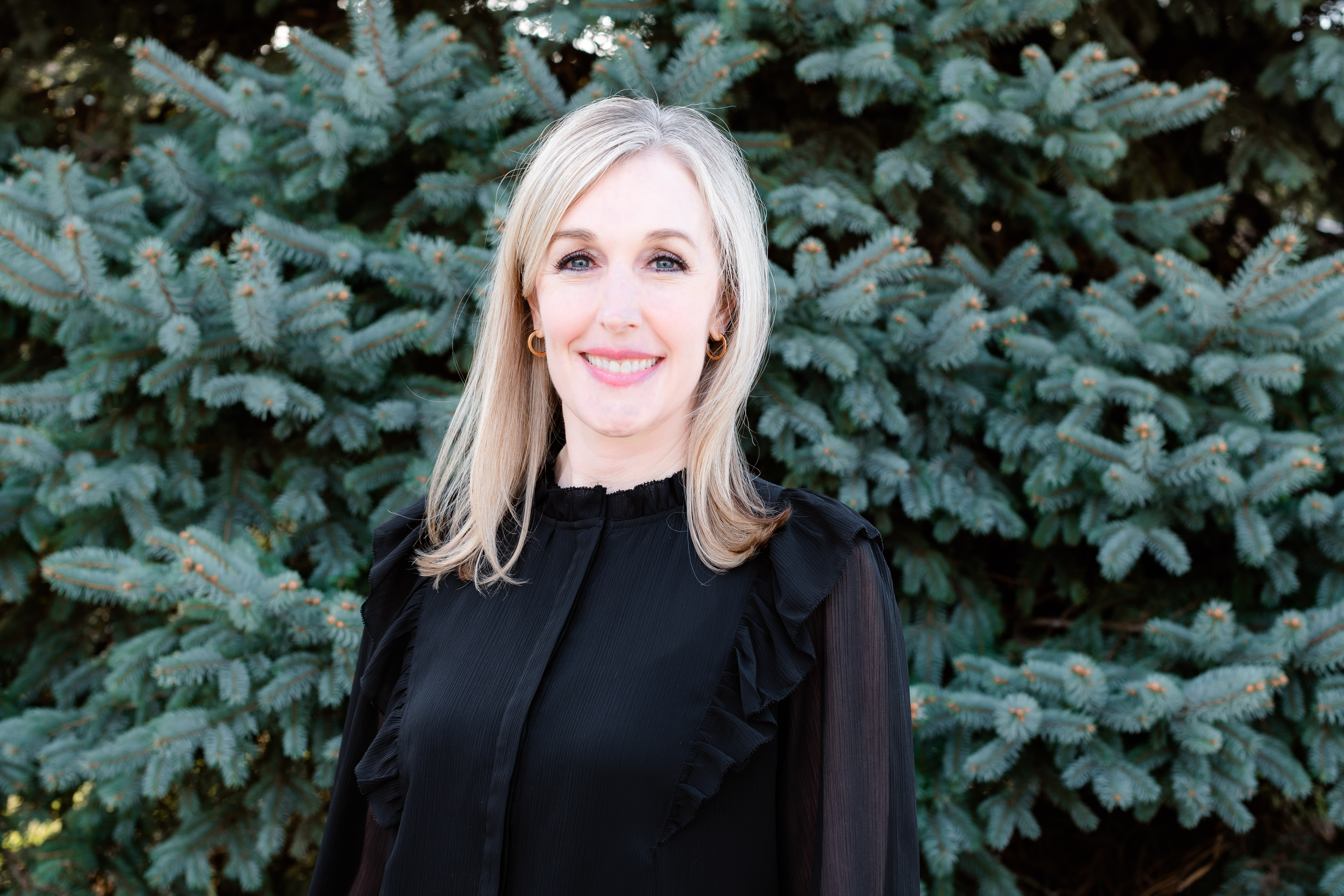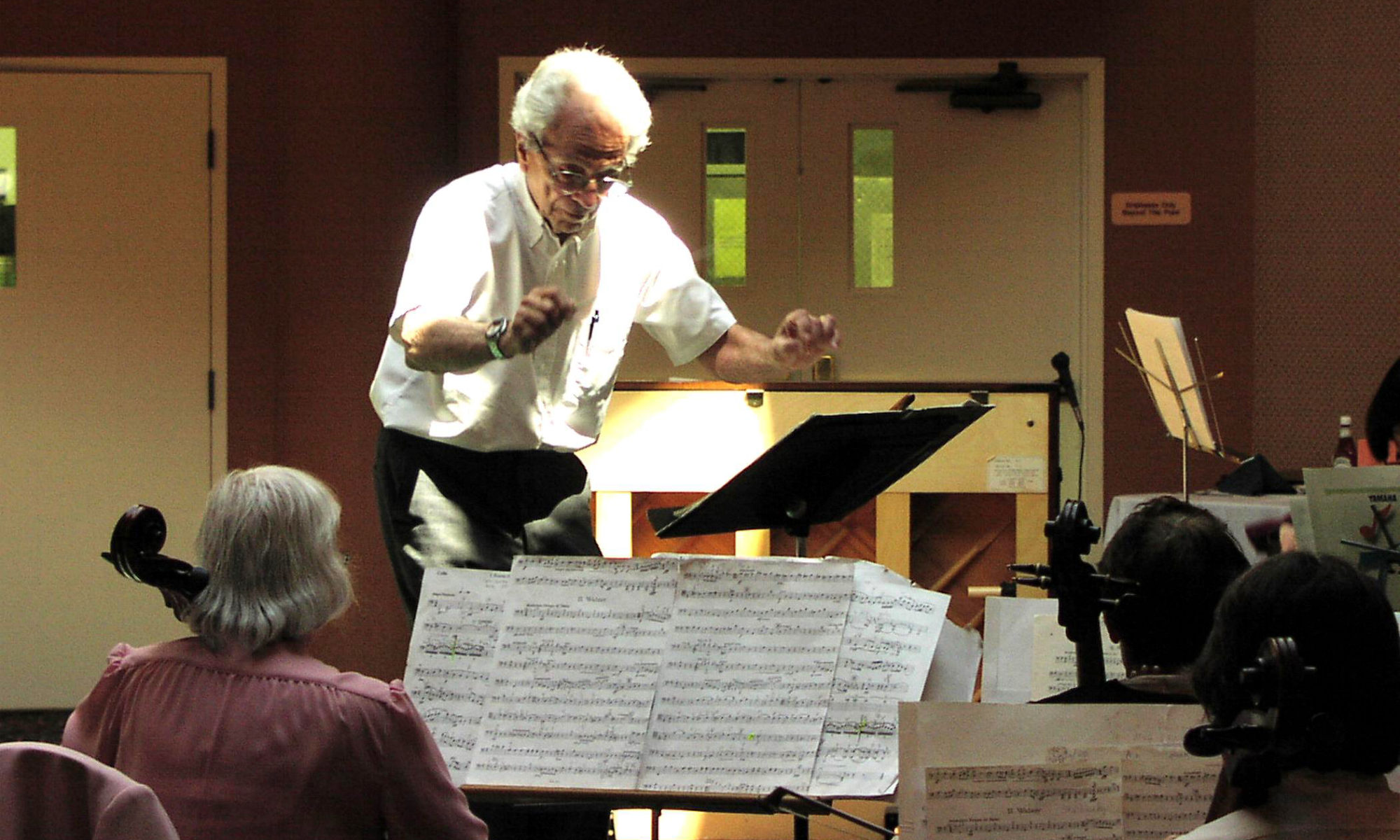Louisville-based Nazareth Home adds to its C-suite
Louisville-based Nazareth Home adds to its C-suite
Source: Louisville Business First
By Jason Thomas

Nazareth Home, a Louisville-based long-term care and rehabilitation organization, has announced that Sarah Askin has been hired as its new chief financial officer.
Askin will play an integral role in planning and forecasting the overall financial vision of the organization, a Nazareth Home news release stated.
“I’m honored to join such a reputable organization in the Louisville community,” Askin said in the release. “Nazareth Home’s mission of providing compassionate care for seniors aligns with my core values, and I look forward to contributing to the long-term growth and success of the organization.”
With more than 20 years working in public accounting, Askin brings significant experience from previous roles where she provided assurance and tax services to both small businesses and nonprofit organizations, according to the release. Askin was previously at Welenken CPAs for 24 years, according to her LinkedIn profile.
“We’re very excited to welcome Sarah to the Nazareth Home family,” Nazareth Home President/CEO Mary Haynes said in the release. “Sarah’s expertise will enable her to make an immediate impact as we continue to position Nazareth Home for a successful future in the ever-changing landscape of senior care. She is an excellent addition to our leadership team.”
Askin holds a bachelor’s degree with a concentration in accounting from Indiana University Southeast. She is a member of the American Institute of Certified Public Accountants and the Kentucky Society of Certified Public Accountants.
Nazareth Home is one of the area’s largest aging care employers, ranking No. 9 in Louisville Business First’s latest research with 360 local employees in 2021, and operates two of the largest long-term care facilities in the area.
Nazareth Home hires Sarah Askin as new chief financial officer
Nazareth Home hires Sarah Askin as new chief financial officer
Source: The Lane Report

LOUISVILLE, Ky. — Nazareth Home, a long-term care and rehabilitation organization, is pleased to announce that Sarah Askin, CPA has been hired as its new Chief Financial Officer. Askin will play an integral role in planning and forecasting the overall financial vision of the organization.
With more than 20 years working in public accounting, Askin brings significant experience from previous roles where she provided assurance and tax services to both small businesses and nonprofit organizations.
“I’m honored to join such a reputable organization in the Louisville community,” Askin said. “Nazareth Home’s mission of providing compassionate care for seniors aligns with my core values, and I look forward to contributing to the long-term growth and success of the organization.”
Askin holds a Bachelor of Science in Business with a concentration in accounting from Indiana University Southeast. She is a member of the American Institute of Certified Public Accountants and the Kentucky Society of Certified Public Accountants.
Click here for more Corporate Moves.
Celebrating the compassionate care of Nazareth Home’s social workers
Celebrating the compassionate care of Nazareth Home’s social workers
In correlation with Social Work Month, Nazareth Home recognizes its compassionate and hard-working social workers who are committed to fulfilling our philosophy of providing person-centered care.
Social workers at Nazareth Home help new residents adjust to living in a nursing home, and they continually work as advocates for the elders we serve. They ensure that the emotional and social needs of the elders are met and maintained on an individualized basis. Social workers collaborate with the care team and act as liaisons for elders and their families when working with physicians, nurses, therapists, and community agencies.
In addition, social workers at Nazareth Home lead interdisciplinary meetings with elders and their loved ones and apply a holistic approach to enhance quality of life. They also establish a discharge plan and aftercare for elders returning home.
Nazareth Home’s team consists of six social workers, with team members at both our Highlands Campus and Clifton Campus. Each social worker holds a Bachelor of Social Work degree, at a minimum, and is uniquely dedicated to a specific level of care.
At our Highlands Campus, our social work team includes:
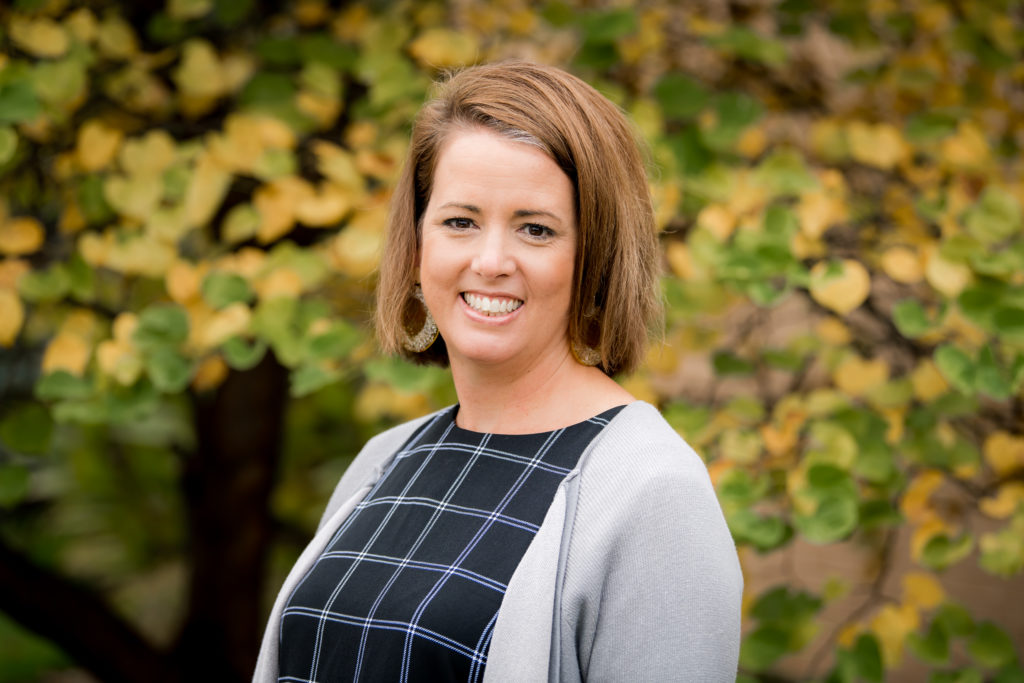
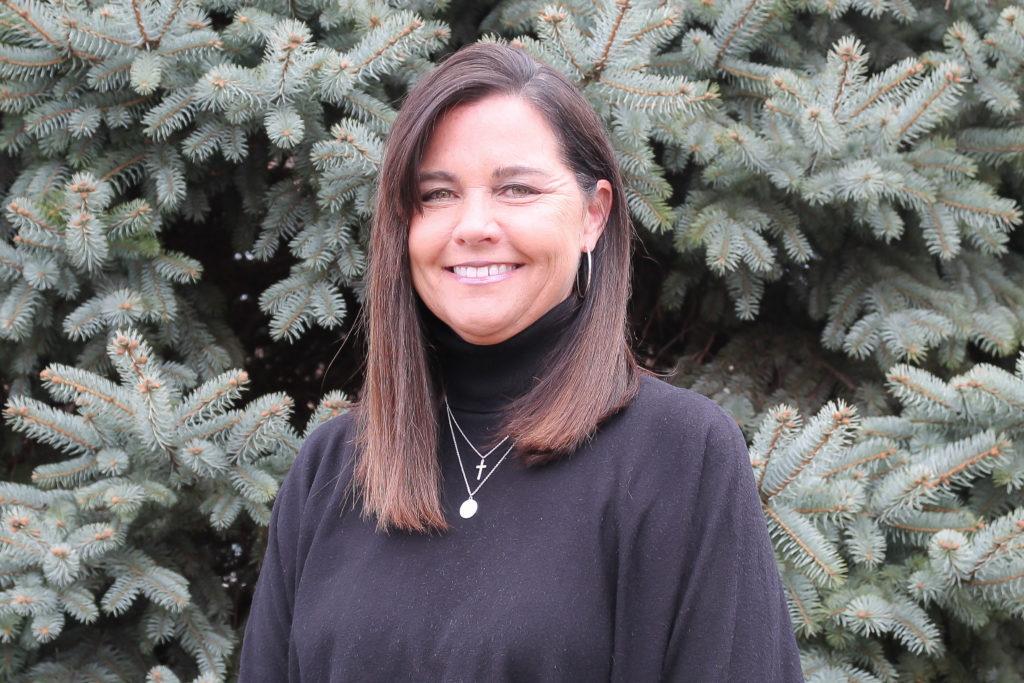
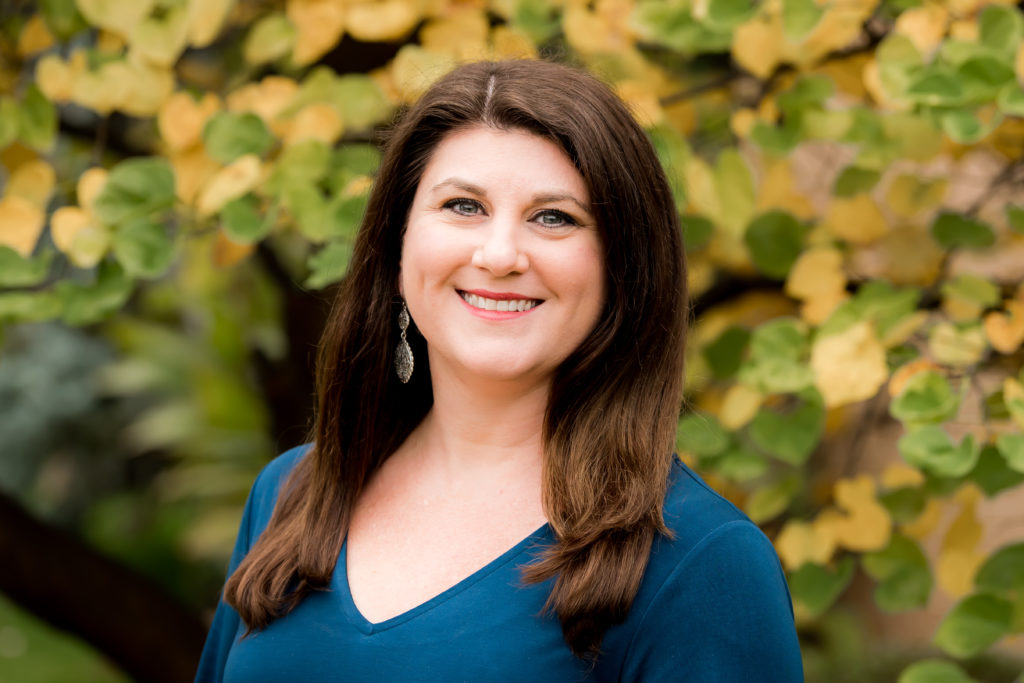
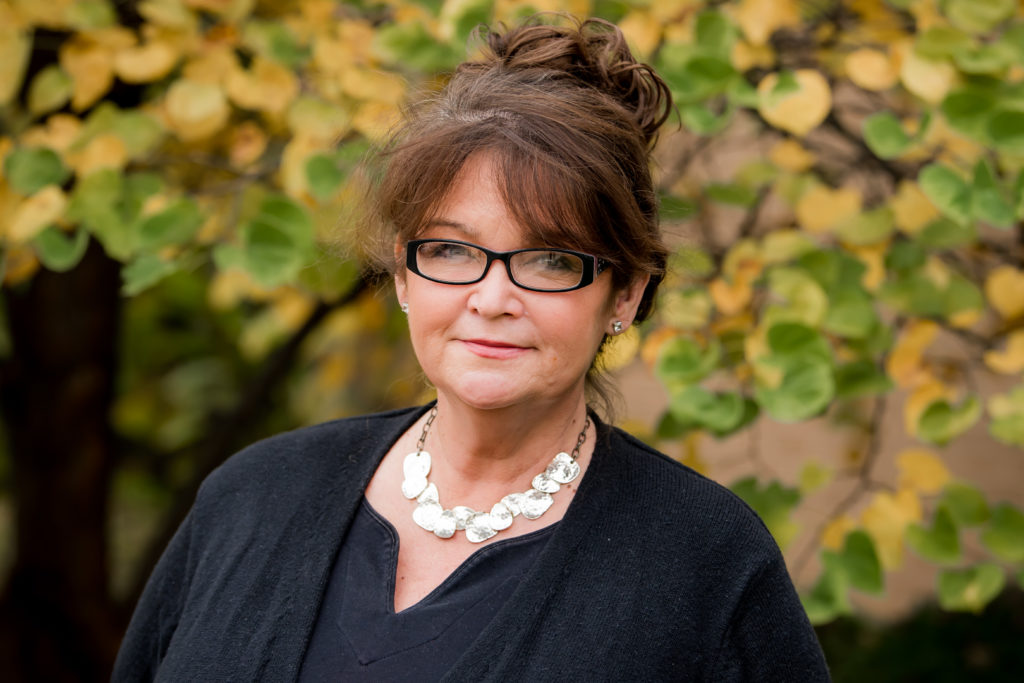
At our Clifton Campus, we have:
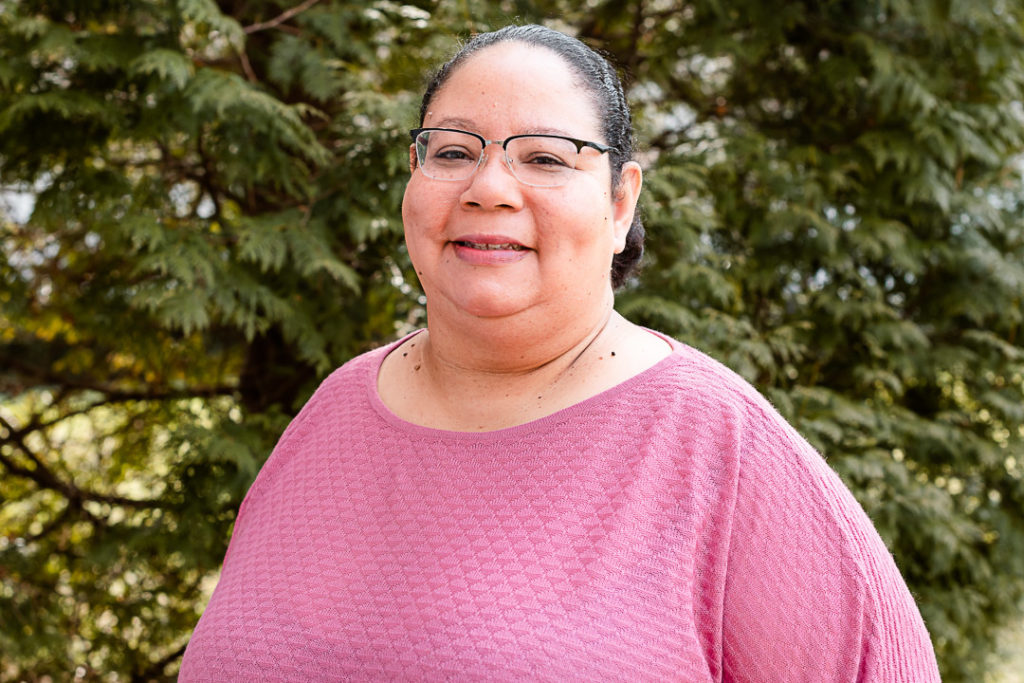
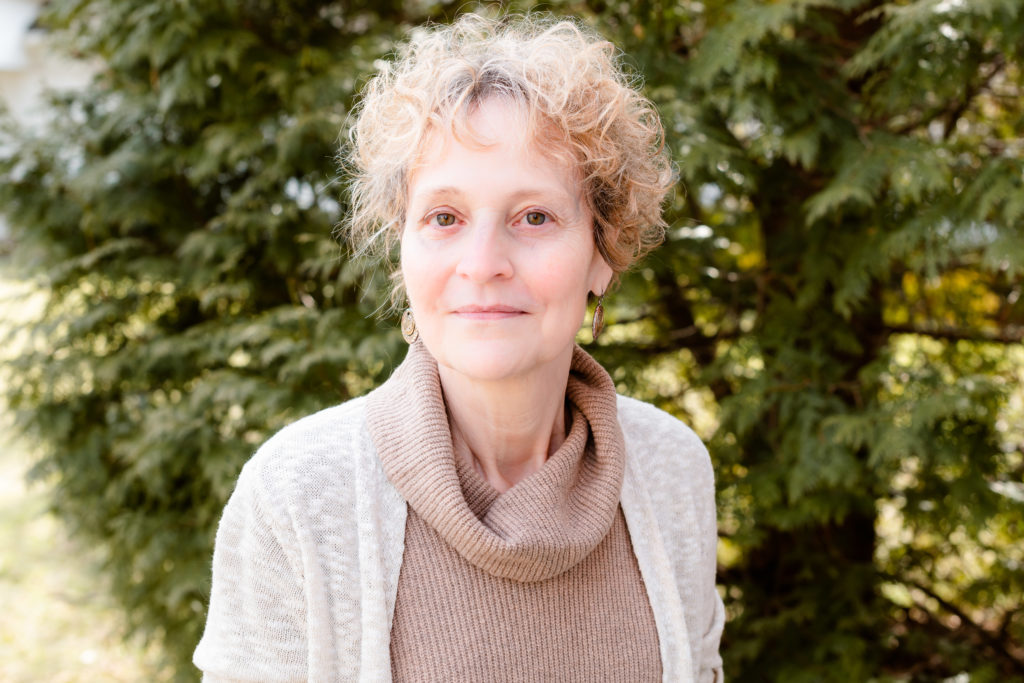
“Our social services team consists of knowledgeable and compassionate women who truly advocate for our elders’ quality of life and work with the care team to ensure their needs are met,” said Gretchen Houchin, Director of Community Development at Nazareth Home. “Their work is truly invaluable, and we want to celebrate their commitment to person-centered care not just in March but year-round.”
Nazareth Home announces hire of new Chief Financial Officer
Nazareth Home announces hire of new Chief Financial Officer

Nazareth Home, a long-term care and rehabilitation organization, is pleased to announce that Sarah Askin, CPA has been hired as its new Chief Financial Officer. Askin will play an integral role in planning and forecasting the overall financial vision of the organization.
With more than 20 years working in public accounting, Askin brings significant experience from previous roles where she provided assurance and tax services to both small businesses and nonprofit organizations.
“We’re very excited to welcome Sarah to the Nazareth Home family,” Nazareth Home President/CEO Mary Haynes said. “Sarah’s expertise will enable her to make an immediate impact as we continue to position Nazareth Home for a successful future in the ever-changing landscape of senior care. She is an excellent addition to our leadership team.”
“I’m honored to join such a reputable organization in the Louisville community,” Askin said. “Nazareth Home’s mission of providing compassionate care for seniors aligns with my core values, and I look forward to contributing to the long-term growth and success of the organization.”
Askin holds a Bachelor of Science in Business with a concentration in accounting from Indiana University Southeast. She is a member of the American Institute of Certified Public Accountants and the Kentucky Society of Certified Public Accountants.
Nazareth Home Receives 2022 Customer Experience Award from Pinnacle Quality Insight
Nazareth Home Receives 2022 Customer Experience Award from Pinnacle Quality Insight
 Nazareth Home has received Pinnacle Quality Insight’s 2022 Customer Experience AwardTM, qualifying in the category of skilled nursing facility. The award signifies Nazareth Home’s continued dedication to providing best-in-class healthcare services for seniors.
Nazareth Home has received Pinnacle Quality Insight’s 2022 Customer Experience AwardTM, qualifying in the category of skilled nursing facility. The award signifies Nazareth Home’s continued dedication to providing best-in-class healthcare services for seniors.
The customer satisfaction report by Pinnacle Quality Insight is designed to measure residents’ satisfaction with regard to their quality of care and quality of life.
The Highlands and Clifton Campuses both received awards for skilled care. The Highlands Campus was also awarded for its personal care program. To qualify for the Pinnacle Customer Experience Award™, Nazareth Home had to score in the top 15 percent of the nation across a 12-month average. Out of 2,700 care providers and 150,000 customer interviews, only those facilities that scored in the 85th percentile or higher received an award.
President/CEO of Nazareth Home, Mary Haynes, described receiving this recognition as a great honor, stating that the organization’s priority is keeping the residents safe, healthy and engaged.
“We are thrilled to be awarded for providing an environment that engages employees to deliver award-winning care where elders can thrive, and families can feel confident their loved one is receiving the best care,” said Haynes. “We are making our mark on the national scale by providing exceptional person-centered care to the elders we serve at both our locations.”
Throughout its long history of serving the community, Nazareth Home has placed a strong emphasis on ensuring that the individual needs of every resident are met. A sampling of Nazareth Home’s residents and their families participated in monthly telephone interviews that included open-ended questions, as well as opportunities to rate Nazareth Home in specific categories. Every month, Nazareth Home gathers its real-time survey results to gain a better understanding of the residents’ needs and make enhancements when necessary.
Complex disease management programs aims to help residents map out their best lives
Complex disease management programs aims to help residents map out their best lives
Source: McKnights Senior Living
By Kimberly Bonvissuto
Nazareth Home residents with extreme complex medical conditions that require attention from multiple medical experts will have access to a new program that creates a personalized treatment plan for them without their leaving home.
The Helping Embrace Life Decisions, or HELD, program brings together experts in the fields of geriatrics and complex disease management to develop plans that focus on the distinct healthcare needs of individual residents of the Louisville, KY-based senior living provider.
The program, launched in collaboration with Pallitus Health Partners, emphasizes closer monitoring of residents and engaging earlier in symptom control. HELD enables residents to discuss their goals and options and identify a plan to improve their quality of life.
Nazareth Home Medical Director Bonnie Lazor, M.D., told McKnight’s Senior Living that residents can choose to participate in the HELD program at any point. For residents of the community’s personal care program, she said, the hope is that they can age in place longer with the additional clinical oversight provided. Memory care resident families, she added, receive additional clinical support and involvement in their loved ones’ care.
“That is critically important when someone with dementia isn’t able to make their own decisions,” Lazor said. “Engaging in HELD provides both support and education for the elders and their families to know what choices can be made in medically complex situations.”
Being able to use the combined team of experts can help residents avoid hospitalization and additional treatments, she added.
“This is really the next generation of care, to empower the elder with complex disease to have more control over their goals, their care options and, ultimately, the plan on how they want to live out their best life,” Nazareth Home President and CEO Mary Haynes said in a statement.
Pallitus Health Partners Chief Medical Officer Bethany Snider, M.D., called the partnership a first-of-its-kind in the area and an “innovative, person-centered approach to caring for those with serious illness.” The organization, she said, provides an “extra layer of support” that improves quality of life for those with complex or advanced health conditions.
The program includes a team of providers and staff members from Nazareth Home and Pallitus Health Partners, along with Tyler McQueen, M.D., a Pallitus Health geriatric medicine specialist who meets with residents weekly about quality-of-life decisions.
Nazareth Home seeks uplifting notes and cards for its frontline workers
Nazareth Home seeks uplifting notes and cards for its frontline workers
Source: The Record
By Marnie McAllister
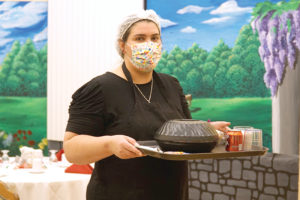
Nazareth Home, which has campuses in the Highlands and Clifton, is asking the public to lift the spirits of its workers with handwritten notes and cards as they cope with another surge in COVID-19.
“It is such a challenging time right now for people who are persevering and dedicated to caring and to the mission of Nazareth Home,” said Melissa Bailey, director of communications. “We have some real troopers who have been on this front line and they haven’t left us.
“We can’t have as many volunteers come in, but there are things we can do. Can we get some notes sent in for our workers to show them some love?”
Bailey said the cards will be given to those who provide healthcare, such as nurses, as well as those who are sometimes overlooked, but who also provide frontline care, including food services and environmental services staff.
“They all provide care,” she said.
Kristina Ushyarova has worked for Nazareth Home for more than half of her life. She started when she was 18 and now, 19 years into her career in food services she is a supervisor in the department. She stays, despite the challenges posed by the pandemic, because “I love the residents,” she said.
“I like to be around the residents every day,” Ushyarova said. “There have been challenges, but we have overcome them.”
She noted that there are fewer opportunities to have one-on-one time with residents “like there used to be” because of the pandemic, but “I offer all of myself to this place.”
“Everyone is taking care of each other and the residents. I try to bring my 100 here every day,” she added.
Tracey Arcelli, the food services director, said Ushyarova reflects the kitchen staff’s loyalty and sense of purpose.
“This is our part in helping them (the residents) get healthy, stay healthy,” she said.
Cards of encouragement can be sent in now through Feb. 14. Individuals, as well as school and church groups, are encouraged to participate. Address them to Nazareth Home, Attn: Communications Director, 2000 Newburg Road, Louisville, Ky. 40205.
Nazareth Home, Pallitus Health Partners announce new program for complex disease management
Nazareth Home, Pallitus Health Partners announce new program for complex disease management
Collaborative program adds an extra layer of individualized care for long-term care residents facing complex medical issues
Nazareth Home, in collaboration with Pallitus Health Partners, a part of Hosparus Health, has announced the implementation of a new complex disease management program known as HELD — Helping Embrace Life Decisions.
The HELD program supports Nazareth Home residents who have extreme or complex medical situations that require the attention and expertise of multiple health care providers. HELD brings together experts in the fields of geriatrics and complex disease management to develop an individualized plan that focuses on the unique healthcare needs of the Nazareth Home resident. It emphasizes closer monitoring of patients and engaging earlier in symptom control so individuals can discuss their goals and options, as well as identify a meaningful healthcare plan that can improve their quality of life for a longer period of time.
“The HELD program aligns with Nazareth’s Home commitment to be forward-thinking in how we deliver compassionate care, especially to those who are facing more complex situations with their health,” said Mary Haynes, president/CEO of Nazareth Home. “This is really the next generation of care to empower the elder with complex diseases to have more control over their goals, their care options, and ultimately the plan on how they want to live out their best life.”
The program includes a team of consistent providers, including staff members from both organizations, along with Dr. Tyler McQueen, a geriatric medicine specialist with Pallitus Health Partners. McQueen meets with Nazareth Home residents on a weekly basis concerning quality of life decisions during their critical time of need.
McQueen is part of Hosparus Health and the Central Louisville clinical team. He earned his medical degree from the University of Virginia School of Medicine and completed his residency in internal medicine at Wake Forest School of Medicine in North Carolina. He then completed fellowships in geriatric medicine and hospice and palliative medicine at Wake Forest. He is board-certified in internal medicine, geriatric medicine, and hospice and palliative medicine, and is a member of the American College of Physicians.
“This partnership, one of the first of its kind in our area, is an innovative, person-centered approach to caring for those with serious illness. As a provider of palliative care, we offer an extra layer of support that is consistently shown to improve quality of life for those with the most complex or advanced health conditions. We remain committed to meeting patients where they are and finding new ways to help them make the most of each day. Our collaboration with Nazareth Home is a natural extension of our mission,” said Bethany Snider, chief medical officer of Pallitus Health Partners.
Pallitus Health Partners offers comprehensive palliative care for serious illness in Kentucky and Indiana. Specialized services include chronic symptom and medication management, disease education and care coordination.
A Profile on Longevity: Louis Moseson
A Profile on Longevity: Louis Moseson
 In early November, residents at our campus in the Highlands enjoyed a beautiful concert in the chapel performed by the Kling Chamber Orchestra. The orchestra was no stranger to Nazareth Home, having played several concerts over the years for the elders. Less than a month later, 97-year-old Louis Moseson of Louisville, who founded the Kling Chamber Orchestra in 1978, would come into our care at the Nazareth Home facility in Clifton.
In early November, residents at our campus in the Highlands enjoyed a beautiful concert in the chapel performed by the Kling Chamber Orchestra. The orchestra was no stranger to Nazareth Home, having played several concerts over the years for the elders. Less than a month later, 97-year-old Louis Moseson of Louisville, who founded the Kling Chamber Orchestra in 1978, would come into our care at the Nazareth Home facility in Clifton.
“It’s a privilege for our team to get to know and provide care to Mr. Moseson. His efforts in founding and conducting the Kling Chamber Orchestra have brought so much joy to Nazareth Home time and time again,” said Dr. Bonnie Lazor, medical director at Nazareth Home. “We have enjoyed hearing about all he has accomplished through his passionate pursuit of learning and giving back to others for so many years.”
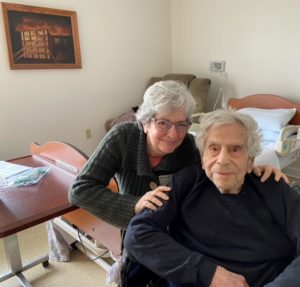 Mr. Moseson’s daughter, Carol Savkovich, spent time telling us about all the many activities her father enjoyed in life and how much he adored his family. He and his wife Margaret, who were married for 63 years, had four children. Carol recalls that they spent time outdoors a lot as a family and loved hiking and canoeing, which Mr. Moseson did well into his 80s.
Mr. Moseson’s daughter, Carol Savkovich, spent time telling us about all the many activities her father enjoyed in life and how much he adored his family. He and his wife Margaret, who were married for 63 years, had four children. Carol recalls that they spent time outdoors a lot as a family and loved hiking and canoeing, which Mr. Moseson did well into his 80s.
“My dad was a very vibrant and incredibly active man,” said Savkovich.
She credits his mental toughness to time spent overseas in WWII as an infantryman in the Army. He contracted malaria upon landing in Africa and went on to fight in Italy and France. He came home with two Purple Hearts and a hand wound that prevented him from completing his major in piano performance at Indiana University, but he didn’t let that get him down. Once is hand healed, he picked up playing again and even learned the cello with his 13-year-old son years later. When his son’s middle school orchestra teacher suggested that Mr. Moseson try composing music, he did just that and completed over 30 works for string ensembles.
Perhaps Mr. Moseson was best known for joining his father’s Louisville clothing store for men, Moseson & King, in 1946 and operating it until it sold in 1976. He enjoyed sales so much that he wrote a book about it called “Unique and Successful Selling Techniques” that was published in 1979.
“I always thought of him as a renaissance man because he had so many talents and interests and did them all well. He was a real family man that provided for and loved his family,” said Savkovich.
His achievements and honors in the community, including the WLKY Bell Award and Red Cross Volunteer of the Year, are too numerous to name here. Likewise, Mr. Moseson had a long list of hobbies throughout his life that included photography, painting, playing music, and woodcarving, among others.
While at Nazareth Home, he enjoyed frequent visits from his daughter, Carol, and loved watching the classical music channel in his room. Mr. Moseson passed away on Saturday, January 15, 2022.



